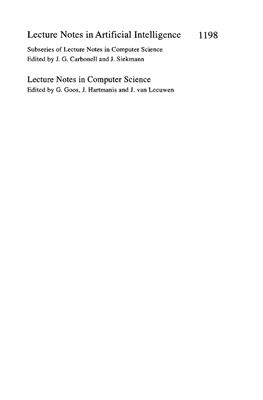Издательство Springer, 1997, -310 pp.
Over the last several years, there has been a distinct flurry of research and development activity under the 'agents' banner in universities and research laboratories world-wide. It is worrying that agent technology is being promulgated by some as a panacea to a whole host of problems. Rampant use and misuse of the word 'agent', exaggerated claims and overselling of this nascent technology are giving currency to many sceptical detractors to claim that this technology is just the current passing AI fad and craze, as were expert systems in the 1980s. At BT Laboratories, we believe such detractors are wrong: expert systems are now established in permanent and secure roles in industry, and so will agent technology be in a decade. By early in the next millenium, we expect software agents to play numerous roles, including managing and controlling networks, enabling customers to buy and sell miscellaneous services on vast wide-area networks such as the WWW, managing the information explosion problem, mining vast databases, assisting in the control of air traffic, facilitating command and control in military systems, and providing many other 'value-added' services.
This book largely presents some of the work of the Intelligent Systems Research group at BT Laboratories, and some of the work of its collaborators. Much of our work is related to agents, as is this book. However, we are also carrying out work in the emerging area of soft computing, and this volume contains several defining papers on this new area, including one which exemplifies this new paradigm.
Naturally, as members of a group with the name 'Intelligent Systems Research', we are all engaged in the broader endeavour of enhancing the 'intelligibility' of machines, with all its attendant benefits to a company like BT. In this vein, this volume also includes some papers propounding valuable views on the past, present, and future of the machine intelligence endeavour.
In short, this book contains seventeen papers which cover the concepts and applications of agent technology, the concepts of soft computing, and some viewpoints on current work towards improved machine intelligence. It is our hope and expectation that this book will provide an informative guide to the promises of these still nascent AI research areas.
Section 1: Software Agents - Concepts
An Introduction to Agent Technology
Artificial Societies and Psychological Agents
Co-ordination in Multi-Agent Systems
Software Agent Technologies
Section 2: Software Agents m Applications
Information Agents for the World Wide Web
Multi-Agent Matchmaking
An Application of Social Filtering to Movie Recommendation
Agents of Change in Business Process Management
Agents, Mobility and Multimedia Information
A Real-Life Experiment in Creating an Agent Marketplace
Section 3: Soft Computing m Concepts and Applications
Over the last several years, there has been a distinct flurry of research and development activity under the 'agents' banner in universities and research laboratories world-wide. It is worrying that agent technology is being promulgated by some as a panacea to a whole host of problems. Rampant use and misuse of the word 'agent', exaggerated claims and overselling of this nascent technology are giving currency to many sceptical detractors to claim that this technology is just the current passing AI fad and craze, as were expert systems in the 1980s. At BT Laboratories, we believe such detractors are wrong: expert systems are now established in permanent and secure roles in industry, and so will agent technology be in a decade. By early in the next millenium, we expect software agents to play numerous roles, including managing and controlling networks, enabling customers to buy and sell miscellaneous services on vast wide-area networks such as the WWW, managing the information explosion problem, mining vast databases, assisting in the control of air traffic, facilitating command and control in military systems, and providing many other 'value-added' services.
This book largely presents some of the work of the Intelligent Systems Research group at BT Laboratories, and some of the work of its collaborators. Much of our work is related to agents, as is this book. However, we are also carrying out work in the emerging area of soft computing, and this volume contains several defining papers on this new area, including one which exemplifies this new paradigm.
Naturally, as members of a group with the name 'Intelligent Systems Research', we are all engaged in the broader endeavour of enhancing the 'intelligibility' of machines, with all its attendant benefits to a company like BT. In this vein, this volume also includes some papers propounding valuable views on the past, present, and future of the machine intelligence endeavour.
In short, this book contains seventeen papers which cover the concepts and applications of agent technology, the concepts of soft computing, and some viewpoints on current work towards improved machine intelligence. It is our hope and expectation that this book will provide an informative guide to the promises of these still nascent AI research areas.
Section 1: Software Agents - Concepts
An Introduction to Agent Technology
Artificial Societies and Psychological Agents
Co-ordination in Multi-Agent Systems
Software Agent Technologies
Section 2: Software Agents m Applications
Information Agents for the World Wide Web
Multi-Agent Matchmaking
An Application of Social Filtering to Movie Recommendation
Agents of Change in Business Process Management
Agents, Mobility and Multimedia Information
A Real-Life Experiment in Creating an Agent Marketplace
Section 3: Soft Computing m Concepts and Applications

